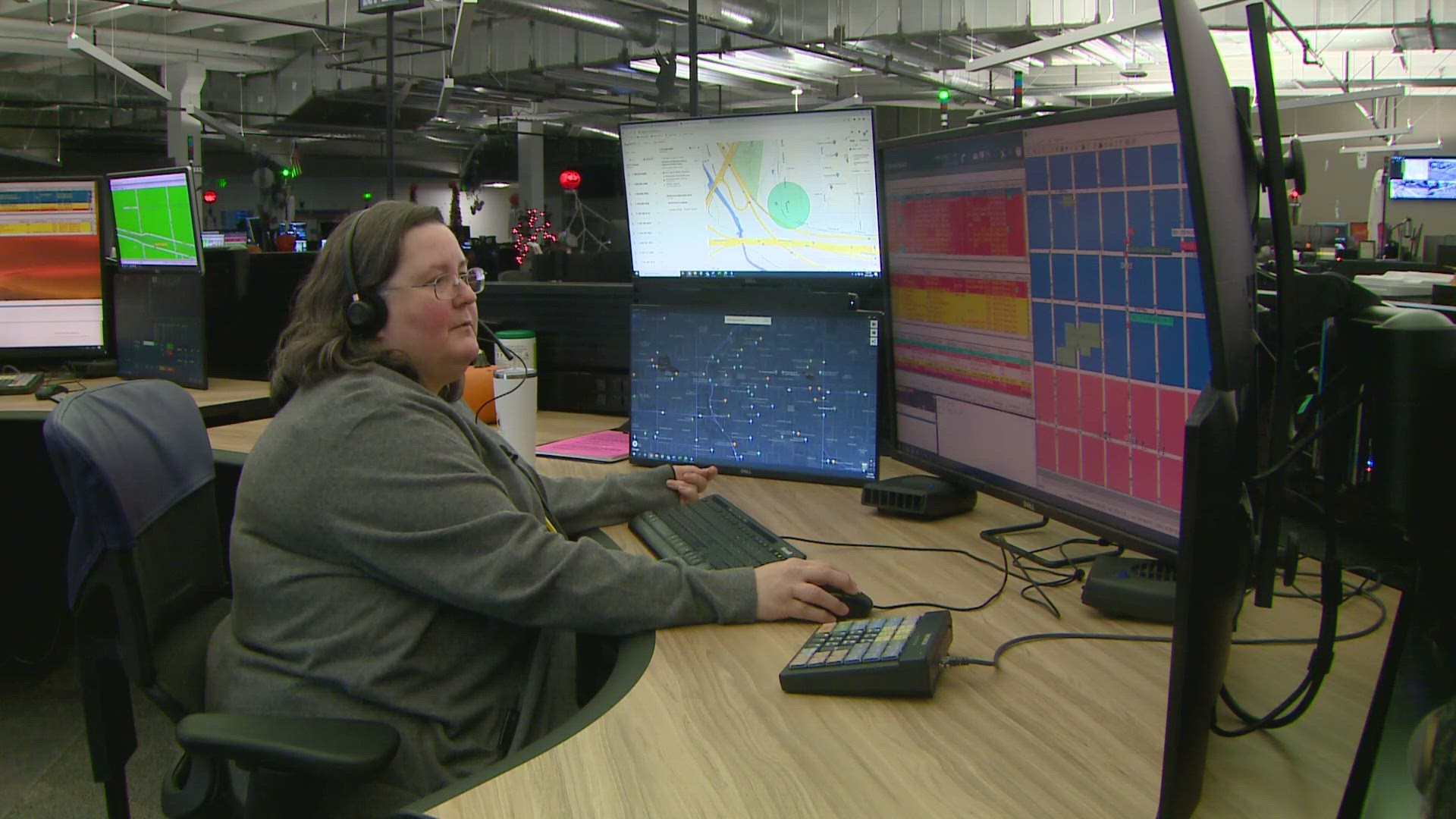DENVER — In between answering emergency calls at Denver's 911 dispatch center, Deanna Foote now has a chance to do something she didn't used to: breathe.
"We used to be on hold pretty much constantly, so it's really nice to have more people now," she said.
Denver is finally nearly fully staffed with 911 call takers -- and they're picking up the phones faster.
About 70% of calls were answered within 15 seconds in the first three weeks of October, compared to just 56% in September, the Denver Department of Public Safety said.
"We're hoping that that's the trend, but we're not ready to do a victory lap just yet," said Andrew Dameron, the city's Director of Emergency Communications.
There is still a need for improvement, however. National standards call for 90% of 911 calls to be answered within 15 seconds.
Dameron said changing how the department recruited, improving wellness programs and increasing pay -- up 45% to a $60,000 starting salary -- has helped recruit and retain more call takers. The second half of a large class of trainees is set to start answering calls solo by early December.
"Their job is very important and we need to pay them accordingly," Dameron said.
Denver can afford to give raises like that. Other more rural counties can't.
Park County, for example, increased wages 20% -- but is so short-staffed it is now sending overnight 911 calls to be answered in neighboring Chaffee County.
"Park County is not a rich county, but we have to find funding to be able to fund our law enforcement, our dispatchers to provide services to the county," Sheriff Tom McGraw said.
Park County now has only three full-time dispatchers. The director of the 911 center, a former dispatcher herself, is now taking calls as well.
"Up here in the mountains that's the way we do," McGraw said. "We help each other out as much as we can."
Other mountain counties are in trouble too. Clear Creek County plans to outsource its 911 center entirely and is in the process of contracting with JeffComm for 911 services.
For dispatchers in Denver, a full staff means a chance to breathe.
"When it's back to back of pretty high priority, pretty upsetting calls, that can be hard," Foote said.
But most importantly to her, more staff answering calls means less time people with emergencies must wait on hold.
"We want them to get through to 911 right away and know that a caring person is on the other end of the line to take that call immediately," she said.
SUGGESTED VIDEOS: Latest from 9NEWS

